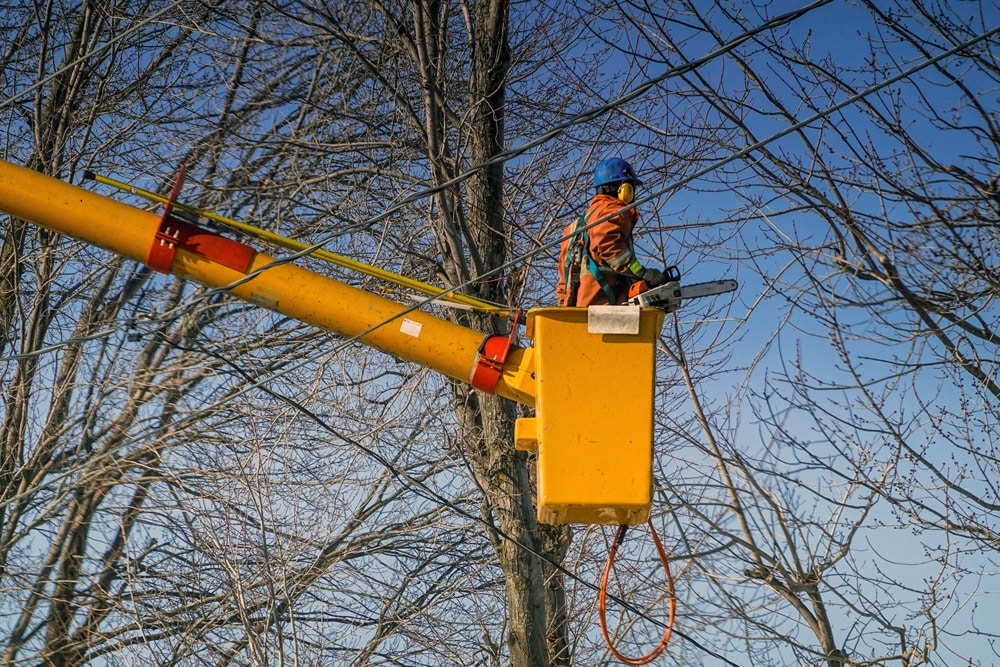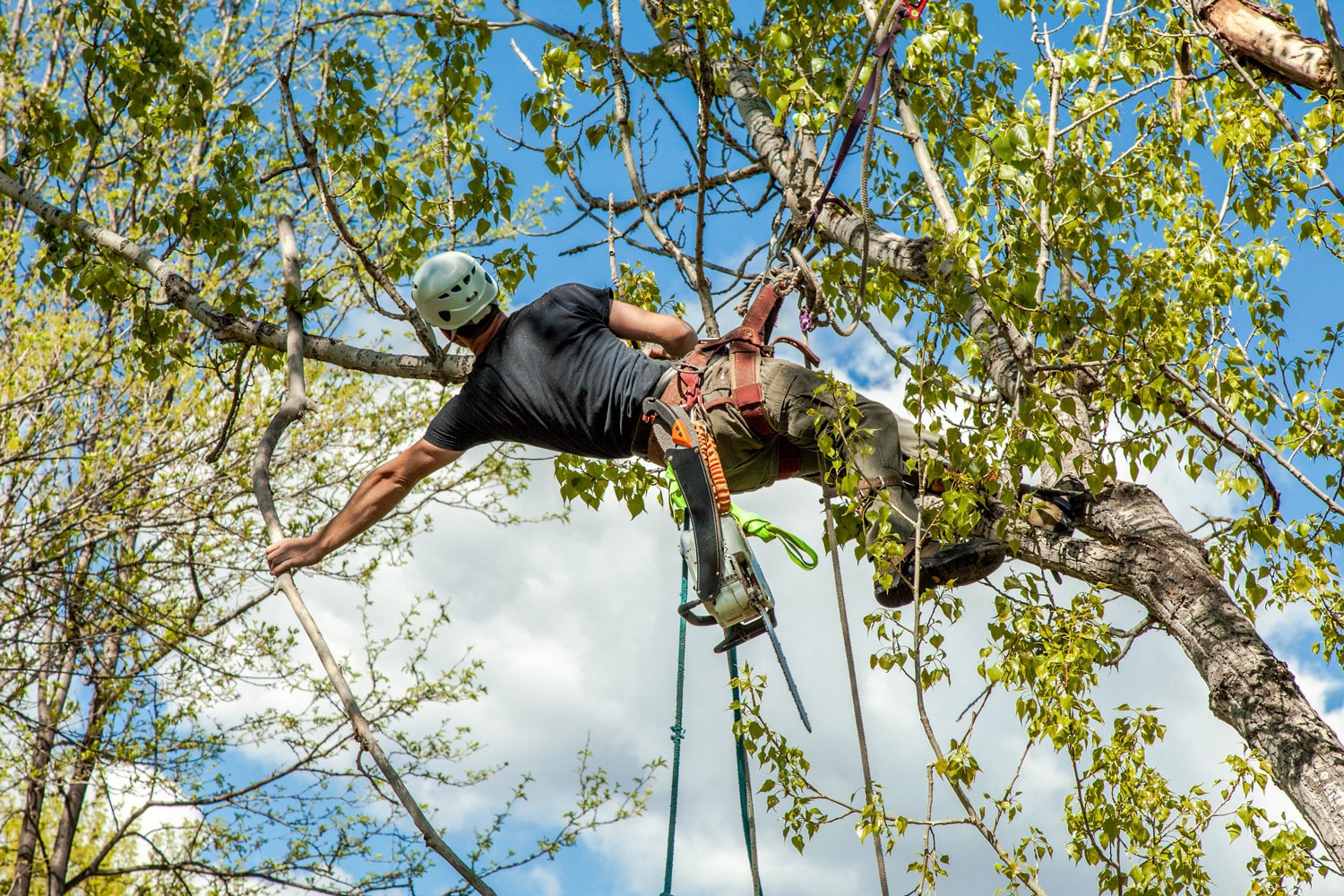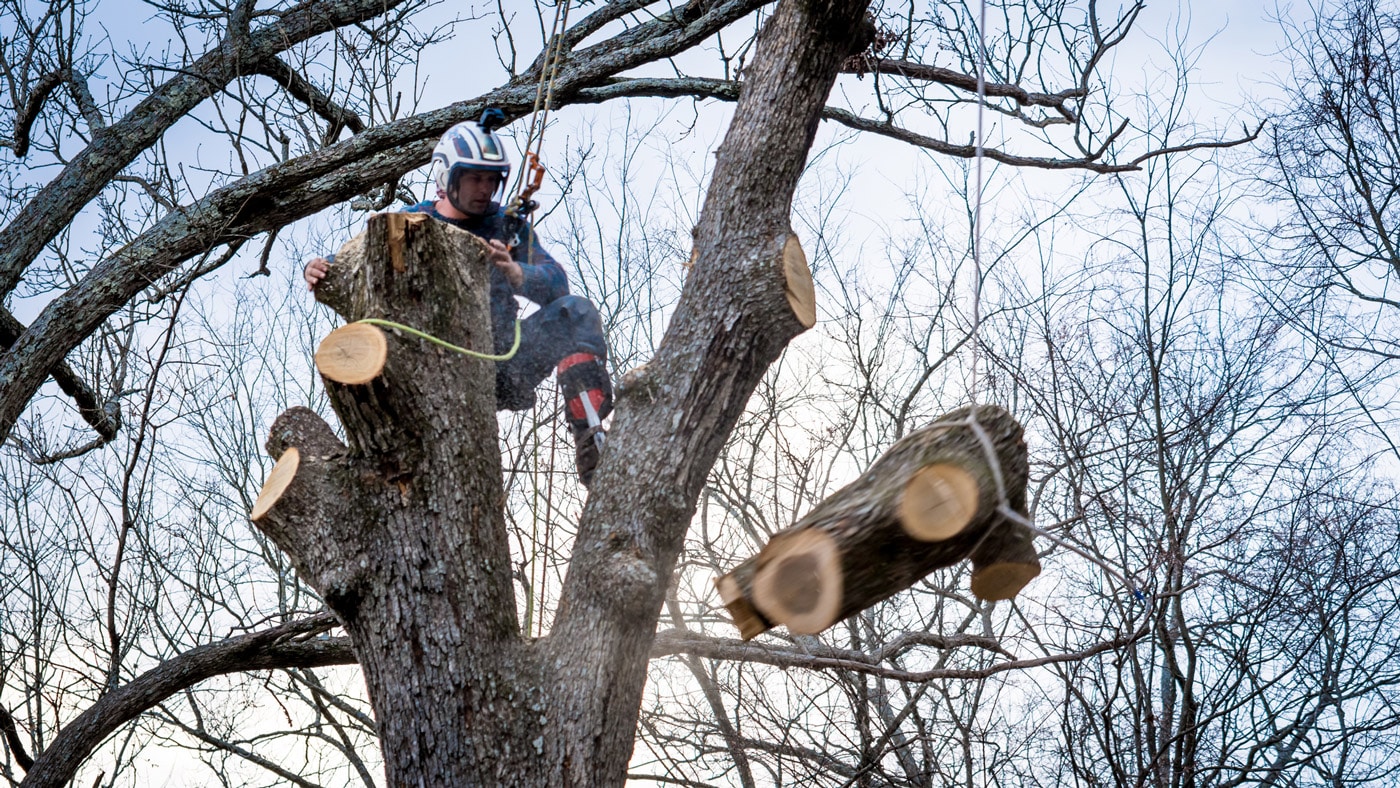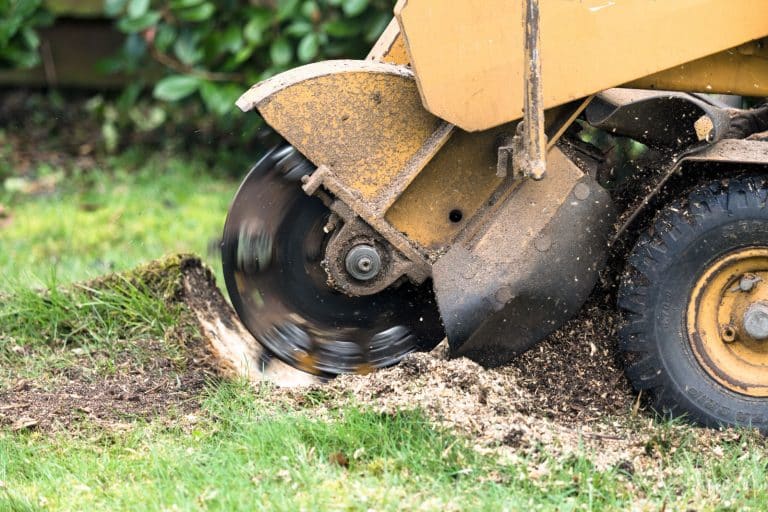Tree Service Insurance Requirements
As long as businesses and individuals own property, tree trimming and pruning services will be in demand. While important, tree service can be dangerous work. In fact, OSHA has listed the profession as one of the most dangerous. Trees can easily weigh several tons, which puts work crews at considerable risk of injury. In addition, the heavy machinery used for trimming and pruning trees also poses a risk to work crews.
To mitigate these risks, tree service businesses should have adequate insurance. Let’s look at the types of insurance tree service businesses should have and their coverage options.
What Insurance Should A Tree Service Have?
Every tree service business should have insurance. The risks are too high to go without adequate coverage. These businesses are often called upon to carry out dangerous work, such as:
- Clearing trees for new construction
- Clearing fallen trees caused by storms or from railroad tracks
- Removing tree stumps
- Trimming bushes and branches near street signs and power lines
Any one of these activities can easily result in severe injuries, liability claims and damage to other people’s property. For tree services that want to obtain government contracts, insurance is a standard requirement.
Tree Trimmer Insurance Coverage Options

There are several types of tree service insurance that every tree service should obtain.
General Liability
Every business should have general liability insurance, which covers:
- Personal injury
- Bodily injury
- Property damage
If someone is hurt or property is damaged while performing your services, liability will cover the cost of medical care and/or repairing or replacing property.
Professional Liability
Many tree companies also provide consulting services or tree care advice. Professional liability insurance will provide coverage for claims of negligence, bad advice or poorly recommended services that lead to damages or losses for the customer.
Loss of Income Insurance
Loss of income insurance, also known as business interruption insurance, provides coverage if your business is forced to shut down because of a covered peril. This policy will cover your ongoing costs as well as employee pay if you need to operate out of a temporary location.
Commercial Property Insurance
If your business operates out of a physical location, then you’ll need commercial property insurance.
Commercial property insurance will protect covered assets if they are damaged or lost in a fire, natural disaster or theft. These assets can include:
- Inventory
- Furniture
- Equipment
- Computers
Additional coverage may be required for items that aren’t attached to the building, such as signs or fences.
If your tree service is a mobile business, you likely don’t need this coverage.
Workers’ Compensation
If you have employees, you will need workers’ compensation insurance. Workers’ comp is required in all states except Texas. But even if your business is in the Lone Star State, it’s in your best interest to obtain this insurance. Otherwise, you may be liable for injuries if a worker is hurt on the job.
Workers’ compensation will cover:
- Medical expenses
- Lost wages
- Rehabilitation
Along with injuries that occur while on the job, workers’ comp will also cover work-related:
- Illnesses
- Repetitive injuries
- Disability
It also protects against lawsuits from injured employees. If an employee is killed while performing work-related duties, a death benefit will be paid to the family.
Inland Marine Insurance
Tree service businesses use a lot of equipment in their day-to-day operations. Inland marine insurance covers equipment and cargo that’s transported between job sites. A conventional commercial or personal auto insurance policy generally does not cover any tools or equipment that are not attached to the vehicle itself. Having this coverage will protect these items.
Along with the tools you transfer in your vehicles or trucks, it will also cover:
- Equipment and tools stored on a job site
- Moveable property
- Property you borrow or have temporarily in your care
Your tools are vital to the operation of your tree service business, so it’s important to ensure they are covered if they are damaged or lost in an unforeseen event.
Commercial Auto Insurance
If you or your employees use vehicles to travel from one job site to the next, you will need a commercial auto policy.
Personal auto insurance policies will likely not cover an accident that occurred while engaging in commercial activity.
Commercial auto insurance will provide you with coverage for vehicles that you use to get to and from job sites and/or your office.
A wide range of vehicles can be covered through your policy, including:
- Pickup trucks
- Box trucks
- Cargo vans
- SUVs
A typical policy will include the following coverages:
- Liability
- Third-party bodily injury
- Personal injury protection (PIP)
- Property damage
- Uninsured and underinsured
- Comprehensive
- Collision
These are standard coverages for a commercial auto policy, but additional policies may be available to cover your unique risks.
Business Owners Policy (BOP)
A BOP is something to consider for a small business owner because it can save you a lot of money in the long run. This type of policy combines:
- General liability insurance
- Commercial property insurance
Additionally, a BOP will often include business interruption insurance, too. Combining multiple insurance policies into one can save you a lot of money on your policy and also make it easier if you have to make a claim.
Utilizing one insurer for all three of these types of insurance means dealing with one point of contact if something goes wrong.
How Much Is Insurance For Tree Service Companies?

Tree service insurance costs vary from one location to another and the size of your business. A standard $1 million policy may cost $400 – $1,500 per year for general liability. However, you’ll need multiple forms of insurance for tree removal:
- General Liability: You can expect to pay $400 to $1,500 for this type of insurance, but prices may be higher for larger tree services with a big workforce.
- Professional Liability Insurance: Costs for professional liability can vary from $20 to $60 per month for a small business.
- Commercial Property Insurance: You may or may not need this type of insurance, but you can expect to pay $60 – $70 per month with a deductible of $1,000 and limits of $60,000.
- Business Interruption Insurance: Costs for business interruption can range from $40 to $150+ per month. The larger your business grows and the more revenue you generate, the higher these overall costs will be.
- Workers’ Compensation: The premiums you pay for workers’ compensation vary greatly and may cost as little as $40 a month. A general rule of thumb, which may or may not be higher or lower, is that for every $100 you spend in payroll, allot $1 for workers’ comp.
- Inland Marine Insurance: Median cost is based on how much property is covered under the insurance. For example, $10,000 in coverage may cost you $20 – $25 a month. However, $100,000 in coverage is $80 – $100 per month.
- Commercial Auto Insurance: Policy limits dictate the overall cost of premiums for your commercial auto insurance. You likely need a $1 million policy limit, and you’ll pay $150 – $200 a month in some states for this policy. If you’re in a major metropolitan area, you may pay two or three times this cost.
- Business Owner’s Policy: Small businesses may have an easier time with a BOP policy because it covers multiple items, such as business interruption and liability. These policies are ideal for owners that are out in the field and may cost $500 to $5,000 per year, depending on multiple factors.
Reducing your tree service insurance costs is possible because you can control some of the cost factors, namely:
- Deductible. If you have a higher deductible, you’ll pay lower premiums.
- Limits. Lower limits allow for less risk to the insurance company and lower premiums as a result.
Additional factors that are considered, and many cannot be controlled, are: the number of employees, location and limits. If you have a lot of past claims, this may mean you’re a higher risk to insure and lead to higher premiums.
Bundling your insurance under one company is often the best solution to save money and make it easier to manage claims.
Do you need tree service insurance and want the best price possible? Fill out the quote form below to receive quotes from some of the best insurers in the industry.


